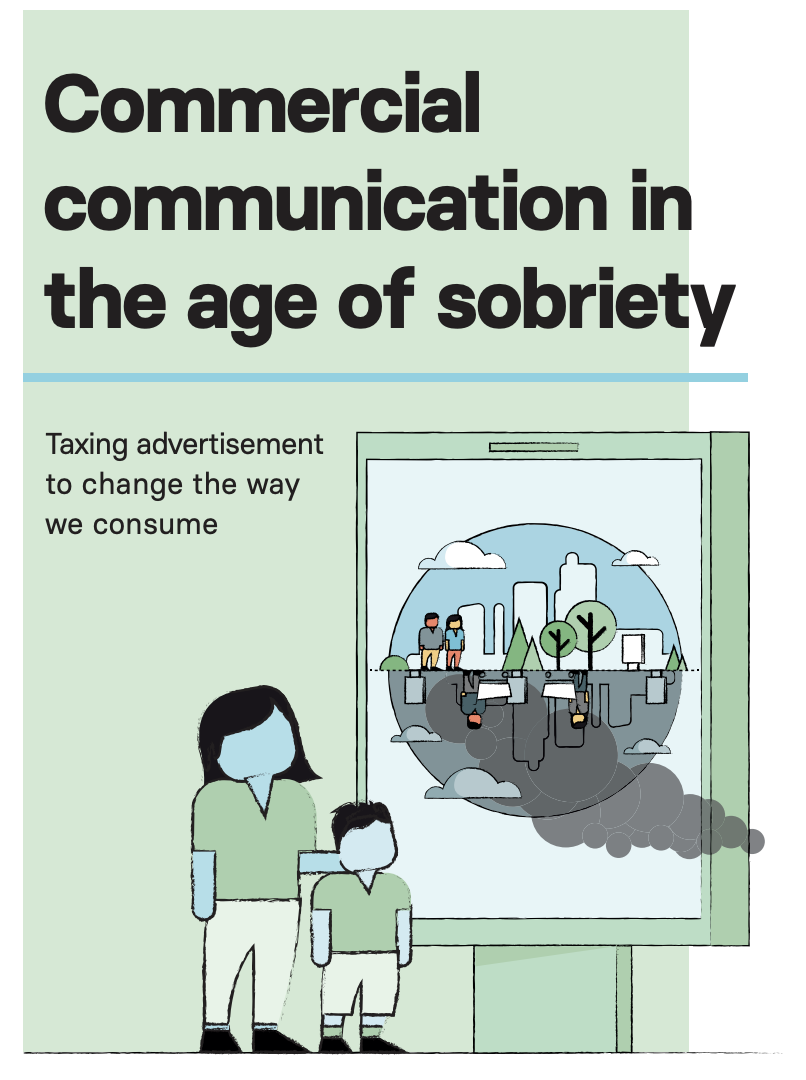New Report: Commercial communication in the age of sobriety

This report is the result of a partnership between Communication et Démocratie and the Veblen Institute for Economic Reforms. It is based on the research work of academics Francesco Turino and Samuel Delpeuch. The academic study's conduct was supervised by a steering committee composed of Didier Courbet, Mathilde Dupré, Renaud Fossard and Thierry Libaert. Their results, recorded in a working paper freely available online, provide an analysis of the effects of advertisement and promotional marketing on the French economy, including the level of consumption in France and identification of the mechanisms that govern these effects. AT the time this report was published, the working paper was undergoing a peer review. It is expected to be published in a scientific journal in 2023, like the first study by Francesco Turino and Benedetto Molinari on the effects of advertising on the US market, published in 2018 in the Economic Journal.
This report is the result of a partnership between Communication et Démocratie and the Veblen Institute for Economic Reforms. It presents new figures on the impact of advertising on consumption, which show the incompatibility of the current model with the objectives of sobriety and ecological transformation.
While the representatives of the advertising industry defend the self-regulation of the sector on the pretext that advertising would strongly stimulate growth, and in particular that of "green" products, this report demonstrates on the contrary its role in over-consumption and calls for the implementation of a tax on advertising to fight against consumerism.
Based on an academic study on the economic effects of commercial communication, this report sought to contribute to establishing a robust diagnosis of the subject and to place it in the current context of ecological crisis. To open up the discussion to possible solutions, the report offers a number of public policy recommendations, including higher taxation of advertising expenditure. These regulatory measures are in line with the idea of transforming our economy to meet the ecological challenge, but also to move towards a society in which sobriety is a desirable objective. This work will make a useful contribution to the public and political debate on the role of commercial communication, and on how to move forward to ensure the role of the communication sector in creating a sustainable world.
Several figures of this report:
- The academic study shows that in France, the nearly €30 billion in average annual spending by advertisers between 1992 and 2019 has led to a cumulative increase of 5.3% in consumption. To finance this additional consumption, the population increased its total working time by 6.6%.
- In the context of the worsening ecological crisis, the environmental impacts of this consumption are numerous. Despite significant disparities according to income levels, CO2 emissions linked to the consumption of French households are high (24.62TCO2 on average in 2010, including imported emissions), and the consumption of goods is at the top of the list of the various emission items.
- Analysis of the commercial communication market data shows a very high concentration. Less than 500 advertisers controlled 2/3 of the market in 2019 - and spending is also concentrated on a small number of products, including sensitive products such as cars, fast food, over-sweetened drinks or online betting.
Click here to read the report in English or in French.

